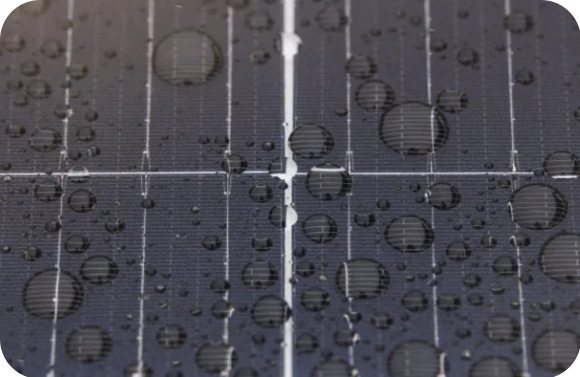Solar Panel with IP67 Waterproof Rating
Solar panels have become an essential part of renewable energy systems, harnessing sunlight to generate electricity. While solar panels are designed to withstand various environmental conditions, ensuring their longevity and performance is crucial. One significant factor in this regard is the IP67 waterproof rating, which provides solar panels with protection against water and dust. In this article, we will delve into the importance of an IP67 waterproof rating for solar panels, its benefits, and how it contributes to the sustainability of solar energy systems.

What is IP67:
The IP67 rating is a standardized measure used to assess the degree of protection a device or component has against intrusion by solids and liquids. IP stands for Ingress Protection, and the two digits that follow have specific meanings. The first digit, in this case, "6," indicates protection against solid particles like dust, with a rating of 6 signifying complete protection. The second digit, "7," signifies protection against the ingress of water. An IP67 rating means that a device is entirely dust-tight (level 6) and can withstand immersion in water up to a depth of 1 meter for up to 30 minutes (level 7).
Benefits of IP67 Waterproof Rating for Solar Panel:
An IP67 waterproof rating for solar panels can offer several benefits, especially when they are exposed to outdoor environments or installed in locations with a high risk of moisture and water exposure. The IP67 rating indicates a high level of protection against dust and water, and here are the key benefits:
- Enhanced Durability. Solar panels with an IP67 rating are highly resilient to dust, dirt, and moisture, making them suitable for a wide range of environments. They can withstand rain, snow, and even temporary submersion, ensuring a longer lifespan.
- Reliable Performance. Water and dust ingress can harm solar panels' internal components, affecting their efficiency. An IP67 rating ensures that the panels remain sealed, maintaining consistent performance over time.
- Lower Maintenance Costs. Solar panels with a higher level of protection require less maintenance. Solar panel with an IP67 rating, there's less need for frequent cleaning and inspections, reducing overall maintenance costs.
- Versatility. IP67-rated solar panels are versatile and can be installed in various locations, including coastal regions, where exposure to saltwater is a concern. Their ability to resist water ingress makes them ideal for marine applications as well.
- Environmental Sustainability. Longer-lasting solar panels reduce the need for replacements, contributing to the overall sustainability of solar energy systems. Fewer discarded panels mean less environmental impact.
Applications of IP67 Solar Panel:
IP67-rated solar panels are designed to withstand harsh environmental conditions, making them suitable for various applications where protection from dust and water is essential.
- Off-Grid Installations. In remote locations with limited access for maintenance, such as off-grid cabins or weather monitoring stations, IP67 solar panels ensure reliable power generation.
- Marine and Coastal Installations. Ships, offshore platforms, and coastal facilities benefit from the protection offered by IP67-rated panels, given their ability to withstand saltwater exposure.
- Agricultural and Industrial Environments. Farms and industrial facilities often have dusty or wet conditions. IP67 solar panels are an ideal choice for powering equipment in such environments.
- Extreme Weather Zones. Regions prone to heavy rains, storms, or flooding can rely on IP67-rated panels to continue producing electricity even in adverse condition.
Incorporating IP67-rated solar panels into renewable energy systems is a smart investment for durability and sustainability. These panels offer enhanced protection against water and dust, ensuring long-term performance and reduced maintenance costs. Whether you’re installing solar panels in remote locations, marine environments, or areas with extreme weather conditions, the IP67 waterproof rating provides the reliability needed to harness solar energy effectively. As the world shifts towards renewable energy sources, the durability and resilience of IP67-rated solar panels play a vital role in the continued success of solar power generation.
